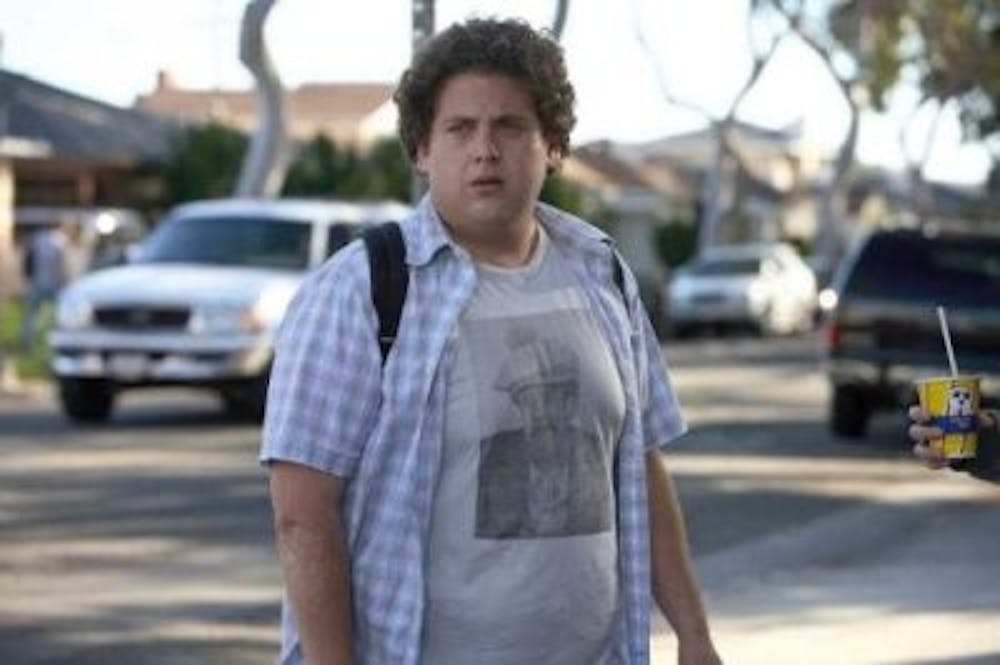Characters that resonate with audiences take on a multitude of identities, each unique to the particular cultural consumer. No matter how much control a creator tries to maintain over an identity that they've created, there's only so much they can do. Sure, they can toss copyright back and forth, but that nagging issue of public domain looms in the future. Things like trade names and logos, anything business-oriented may be protected indefinitely, but the law is very obscure when it comes to purely cultural concoctions. So while the argument for Mickey Mouse being a logo can be made, eliminating free public use in the future, something like, say, Holden Caulfield, will wander out into the same area that Sherlock Holmes and Tarzan are currently in.
Speaking of Caulfield, his notoriously reclusive maker, J.D. Salinger, has instigated a federal lawsuit regarding his protectionist policies toward his work. "60 Years Later: Coming Through the Rye," a book written by a "JD California" with a 76-year-old who is obviously an aged Caulfield. Well, he's named Mr. C, so that makes it completely different, right?
Mr. C escapes from his nursing home (prep school), has a surly attitude and wanders around New York City for a bit. Sound familiar? It does to Salinger, and so he's actually doing something other than writing books that we'll have to wait until he croaks to read. While California's book is pretty much a sequel written without any right or consent, one has to wonder what the damage its publishing would do.
There's little doubt anyone would confuse "60 Years Later:..." with an official sequel to "Catcher in the Rye," given Salinger's well-known hatred of publishing anything, and there's little such book could do to damage or put a bizarre twist on anyone's pre-existing interpretation of the character.
Let's compare this with another well-known reclusive master of his craft, Bill Watterson, of "Calvin and Hobbes" fame. Watterson quit during his prime, when his comic strip began to be a major cultural force and a ubiquitous source of the best the comic strip has to offer. Right when he hit this peak, he backed out, citing concerns that the pressure for him to "sell out" and give the rights for his characters to be used in advertising, television, t-shirts etc.
While it may seem a bit extreme, and while it may contradict the aforementioned point that the unofficial sequel would have little bearing on public perception of Caulfield and fans add their own nuances and intricacies to the characters they adore, there must be praise and support for artists who choose to take the high road.
The dangerous trend of culture becoming dependent on commerce to survive has made cultural ventures a matter of money and not of intellectual insight. Hollywood executives use idiotic "oversight" to force taked-on love stories, unnecessary sidekicks and all sorts of plot points that do nothing but drag down any sort of vision films can offer, in exchange for a perceived greater opening weekend gross. The music industry is terribly split between the labels who value music for qualities such as, you know, quality, and those who just slather on pre-approved, calculated beats onto half-hearted vocals with lyrics written by consensus.
That's not to say that there isn't any role for profit in culture, for anything to thrive in modern society, it has to be able to pay the bills, and in some cases, greater bankrolls can lead to broader and more realized artistic visions. "Sgt. Pepper's Lonely Hearts Club Band" wasn't recorded for a bargain price. But there's something inherently broken about creating something artistic for the sole purpose of making money. When you do that, you're not creating art, you're creating a product. And that's what "60 Years Later:..." it's simply a publicity stunt intended to sell a few books based upon Salinger's merit, not the quality of the prose itself.
Lashing out against this sort of exploitation may be futile in the long run, eventually everyone will be making stupid unofficial sequels and printing dumb t-shirts, but for now, Salinger understands that, while readers can maintain their own renditions of his work, the integrity of that work is something that should not be tampered with. Giving "60 Years Later:..." a free ride opens up a can of worms, one that does no one any good (except maybe for Mr. California.)


